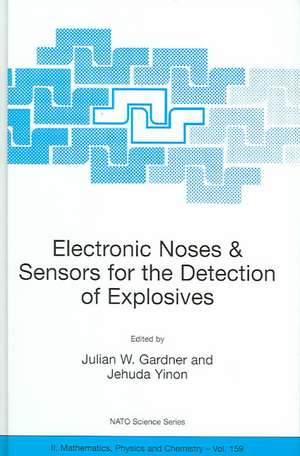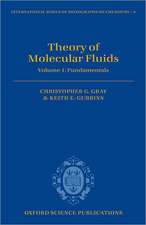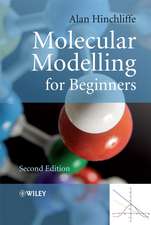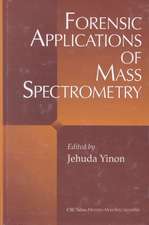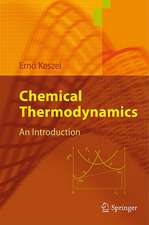Electronic Noses & Sensors for the Detection of Explosives: NATO Science Series II: Mathematics, Physics and Chemistry, cartea 159
Editat de J. Gardner, Jehuda Yinonen Limba Engleză Hardback – 17 aug 2004
It begins with a review of the basic principles of an electronic nose and explores possible ways in which the detection limit of conventional electronic nose technology can be reduced to the level required for the trace levels observed for many explosive materials. Next are reviews of the use of several different types of solid-state chemical sensors: polymer-based sensors, i.e. chemiluminescent, fluorescent and optical, to detect explosive materials; metal oxide semiconducting resistive sensors; and then electrochemical sensors. Next, different pattern recognition techniques are presented to enhance the performance of chemical sensors. Then biological systems are considered as a possible blue-print for chemical sensing. The biology can be employed either to understand the way insects locate odorant sources, or to understand the signal processing neural pathways. Next is a discussion of some of the new types of electronic noses; namely, a fast GC column with a SAW detector and a micromechanical sensor. Finally, the important issues of sampling technologies and the design of the microfluidic systems are considered. In particular, the use of pre-concentrators and solid phase micro extractors to boost the vapour concentration before it is introduced to the chemical sensor or electronic nose.
| Toate formatele și edițiile | Preț | Express |
|---|---|---|
| Paperback (1) | 1817.08 lei 6-8 săpt. | |
| SPRINGER NETHERLANDS – 17 aug 2004 | 1817.08 lei 6-8 săpt. | |
| Hardback (1) | 1823.39 lei 6-8 săpt. | |
| SPRINGER NETHERLANDS – 17 aug 2004 | 1823.39 lei 6-8 săpt. |
Din seria NATO Science Series II: Mathematics, Physics and Chemistry
-
 Preț: 260.24 lei
Preț: 260.24 lei - 18%
 Preț: 1272.32 lei
Preț: 1272.32 lei - 15%
 Preț: 644.30 lei
Preț: 644.30 lei - 18%
 Preț: 1848.33 lei
Preț: 1848.33 lei - 18%
 Preț: 1235.76 lei
Preț: 1235.76 lei - 15%
 Preț: 649.87 lei
Preț: 649.87 lei - 18%
 Preț: 957.75 lei
Preț: 957.75 lei - 15%
 Preț: 656.58 lei
Preț: 656.58 lei - 18%
 Preț: 1235.43 lei
Preț: 1235.43 lei - 18%
 Preț: 960.13 lei
Preț: 960.13 lei - 18%
 Preț: 1225.79 lei
Preț: 1225.79 lei - 15%
 Preț: 666.41 lei
Preț: 666.41 lei - 18%
 Preț: 1835.07 lei
Preț: 1835.07 lei - 15%
 Preț: 640.71 lei
Preț: 640.71 lei - 18%
 Preț: 954.45 lei
Preț: 954.45 lei - 18%
 Preț: 1227.36 lei
Preț: 1227.36 lei - 15%
 Preț: 646.11 lei
Preț: 646.11 lei - 18%
 Preț: 948.61 lei
Preț: 948.61 lei -
 Preț: 400.10 lei
Preț: 400.10 lei - 18%
 Preț: 959.82 lei
Preț: 959.82 lei - 18%
 Preț: 944.19 lei
Preț: 944.19 lei - 18%
 Preț: 1838.38 lei
Preț: 1838.38 lei - 18%
 Preț: 1222.49 lei
Preț: 1222.49 lei - 18%
 Preț: 939.94 lei
Preț: 939.94 lei - 18%
 Preț: 950.66 lei
Preț: 950.66 lei - 18%
 Preț: 957.44 lei
Preț: 957.44 lei
Preț: 1823.39 lei
Preț vechi: 2223.64 lei
-18% Nou
Puncte Express: 2735
Preț estimativ în valută:
348.97€ • 363.36$ • 294.91£
348.97€ • 363.36$ • 294.91£
Carte tipărită la comandă
Livrare economică 07-21 martie
Preluare comenzi: 021 569.72.76
Specificații
ISBN-13: 9781402023170
ISBN-10: 1402023170
Pagini: 308
Ilustrații: XVIII, 308 p.
Dimensiuni: 155 x 235 x 22 mm
Greutate: 0.64 kg
Ediția:2004
Editura: SPRINGER NETHERLANDS
Colecția Springer
Seria NATO Science Series II: Mathematics, Physics and Chemistry
Locul publicării:Dordrecht, Netherlands
ISBN-10: 1402023170
Pagini: 308
Ilustrații: XVIII, 308 p.
Dimensiuni: 155 x 235 x 22 mm
Greutate: 0.64 kg
Ediția:2004
Editura: SPRINGER NETHERLANDS
Colecția Springer
Seria NATO Science Series II: Mathematics, Physics and Chemistry
Locul publicării:Dordrecht, Netherlands
Public țintă
ResearchCuprins
Review of Conventional Electronic Noses and Their Possible Application to the Detection of Explosives.- Polymer Electronics for Explosives Detection.- Luminescent Inorganic Polymer Sensors for Vapour Phase and Aqueous Detection of TNT.- Amplifying Fluorescent Polymer Arrays for Chemical Detection of Explosives.- Fast Detection of Explosives Vapours and Particles by Chemiluminescence Technique.- Optical Microsensor Arrays for Explosives Detection.- Metal Oxide Semiconductor Sensors for Detection of Toxic and Explosive Gases.- Detection of Landmines and Other Explosives with an Ultra-Trace Chemical Detector.- Electrochemical Sensing of Nitroaromatic Explosives.- Improved Sensitivity for Explosive Vapours and ICAO Taggents Detection Using Electrochemical (EC) Sensors.- Electrochemical Trace Detection and Pattern Recognition.- Detection of Dynamic Smell Intensity.- Chemotactic Search in Complex Environments.- A Spiking Neural Network Model of the Locust Antennal Lobe.- Detecting Chemical Vapours from Explosives Using the zNose®, an Ultra-High Speed Gas Chromatograph.- Explosive Vapour Detection Using Micromechanical Sensors.- Solid Phase Microextraction for Field Sampling.- A Digital Microfluidics Platform for Multiplexed Explosive Detection.- Next Generation Trace Explosives Detection Systems.- Summary of the Workshop.
